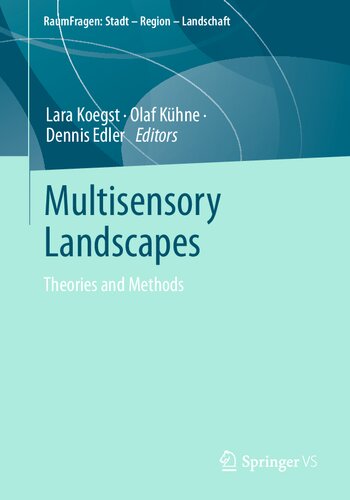

Most ebook files are in PDF format, so you can easily read them using various software such as Foxit Reader or directly on the Google Chrome browser.
Some ebook files are released by publishers in other formats such as .awz, .mobi, .epub, .fb2, etc. You may need to install specific software to read these formats on mobile/PC, such as Calibre.
Please read the tutorial at this link: https://ebookbell.com/faq
We offer FREE conversion to the popular formats you request; however, this may take some time. Therefore, right after payment, please email us, and we will try to provide the service as quickly as possible.
For some exceptional file formats or broken links (if any), please refrain from opening any disputes. Instead, email us first, and we will try to assist within a maximum of 6 hours.
EbookBell Team

0.0
0 reviewsThis book provides a broad view on multisensory landscapes from multiple perspectives.
It includes theoretical perspectives as well as case studies. Different theoretical perspectives on landscape emerging from research in the last decades also require a differentiated approach to landscape phenomena, going beyond the visual. For example, a social constructivist approach to the social world foregrounds the processes of negotiating social ‚realities‘. This is not limited to visual aspects, and is not based on a clear physical measurability with an accompanying (purely quantitative) recording. A phenomenological approach, for example, places the synesthetic experience of landscape at the core of interest. This approach to the topic of multisensory via ‚landscape‘ is obvious for several reasons. Firstly, landscape is created (from a constructivist perspective) through the synthesis of sensory impressions on the basis of social patterns of interpretation and evaluation. Secondly, communication about ‚landscape‘ is also accessible to people who do not have any ‚expertlike special knowledge‘ in this regard. Thirdly, landscape as a changing concept is not only a concept of landscape but also of landscape itself. Fourthly, landscape as a changeable concept is particularly suitable for conceptually framing the highly fleeting non-visual stimuli.